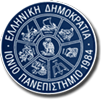Varna
Greek community

Author: LYBERATOS ANDREAS
Varna’s Greek community developed in the 19th century out of the former Orthodox community, which represented in the centuries of Ottoman rule all Orthodox Christians (rum) of the city. This first, “pre-national”, period of the community lasted roughly until the first half of the 19th when the liberalization of grain trade and the incorporation of the region into the world economy brought to Varna many Greek merchants (Ottoman, Ionian or Greek subjects), bearers of the Greek national culture and ideology. Under their formative influence a process of dynamic cultural Hellenization (addressing mainly the Gagauzes, a considerable part of the community which was Turkophone), unfolded in the middle decades of the 19th c. The town’s Orthodox communal organization laid the foundations of modern education (the first Greek secondary school in the town was founded in 1840, and a primary Lancasterian school – in 1844-5), took care of the maintenance of the churches, and engaged in charitable activities. The political structure of the community was characterized by the typical pre-modern fusion of church and lay authority. The archbishop was the head of the community, which was run by a Committee of Elders, local notables who were invested the old Byzantine nomenclature. The secularization of the community governance and its incorporation to the reforming Ottoman state were processes initiated in the late Mahmudian period.
The end of the Crimean war initiated a second period (1856-1878) in the life of the community, which was marked by intra-communal conflicts resulting out of the development of the Bulgarian national movement and the Bulgarian-Greek Church dispute. A new Orthodox Christian communal organization emerged in Varna in 1860, the Bulgarian Community, development which created political tensions and division among the Orthodox Christians, predominantly in the countryside, but also within the city of Varna. The Greek communal organization preserved its leading position as a religious, cultural, educational, and economic center, which represented the overwhelming majority of the local Orthodox population until the incorporation of the city into autonomous Bulgaria (1878). During this period, the number of Greek schools and their students increased, a library, theater hall, and a museum were built, and a Greek educational association (Filekpaideutikos Syllogos Varnis) under the leadership of Varna’s metropolitan himself was established.
The third and last period in the history of Varna’s Greek Religious community (as it was officially labelled) covers the time from the Liberation of Bulgaria in 1878 until 1939. In the first part of this period and until the end of the 19th century, the Greek community of Varna and the Greeks of Varna showed a remarkable economic, social and cultural activity defending their cultural difference, despite the continuous assimilatory pressures of the Bulgarian state. The decay of the community, initiated under economic and political pressures in the 1890s, was accelerated by the anti-Greek pogrom of 1906 which led to the first wave of emigration of Greek Varniotes to the Kingdom of Greece. Two more waves of emigration of Greeks from Bulgaria, following the Balkan Wars and the WWI under the scheme of voluntary population exchange, affected also the Varniote Greeks. However, a considerable part of the former Greek community chose to remain in the city and get gradually assimilated to the dominant Bulgarian nationality. A last small wave of emigration of the remaining Greeks of the city, expelled by the Bulgarian authoritarian regime of that time, occurred just before WWII.
References
Bibliography:
Библиография:
Λυμπεράτος Α., «Οι Έλληνες της Βάρνας. Όψεις πολιτικής και κοινωνικής δημογραφίας», Τα Ιστορικά, 63 (Απρίλιος 2016), σ. 69-106.
Α. Lyberatos, “Varna’s bourgeoisie(s) from Empire to Nation State (1840-1920)” in: Idem & C. Ardeleanu (eds.), Port Cities of the Western Black Sea Coast & the Danube. Economic and Social Development in the Long 19th Century, e-book, Thales Black Sea Project, 2016, p..190-211.
Lyberatos, A. “Between war and trade: remarks on the political constitution and social composition of the Greek orthodox community of Varna (19th century)”, Etudes balkaniques, vol. 2, 2007, p. 81–98.
Ιωάννης Νικολάου, Η Οδησσός (Βάρνα) υπό αρχαιολογικήν και ιστορικήν άποψιν, Βάρνα 1894.
Щерионов, Щ., Гърците в българските земи през XVIII–XIX в. (до 1878 г.). Историко-демографска характеристика, В. Търново, 2008;
Русев, И. Варна през Късното Средновековие и Възраждането (края на XІV в. – 1878 г.). – В: Русев, И., В. Плетньов. История на Варна. Т. ІІ (VII в. – 1878 г.). Изд. „Славена” – Варна, 2012, с. 396–401.
Back




